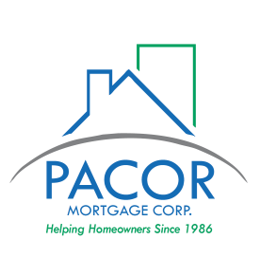Reverse Mortgage Loans
This is a form of equity release available to seniors aged 62 or older, per HUD, and is used to release the home equity in the property as one lump sum or multiple payments. The homeowner’s obligation to repay the loan is deferred until the owner dies, the home is sold, or the owner leaves. The owner can be out of the home for up to 364 consecutive days. The loan becomes due when the borrower no longer maintains the home as the principal residence, fails to pay taxes, insurance, HOA fees, or otherwise fails to comply with the loan terms.
In a conventional mortgage the homeowner makes a monthly amortized payment to the lender; after each payment the equity increases within his or her property, and typically after the end of the term the mortgage has been paid in full and the property is released from the lender and becomes fully and solely owned by the homeowner. In a reverse mortgage, the home owner makes no monthly mortgage payments and all interest is added to the lien on the property. However payments for property taxes, insurance, utilities, maintenance, and other expenses must be made. If the owner receives monthly payments, or a bulk payment of the available equity percentage for their age, then the debt on the property increases each month.
If a property has increased in value after a reverse mortgage is taken out, it is possible to acquire a second (or third) reverse mortgage over the increased equity in the home in some areas. However most lenders do not like to take a second or third lien position behind a reverse mortgage because its balance increases with time. It is rare to find reverse mortgages with subordinate liens behind them as a result. A reverse mortgage may be refinanced if enough equity is present in the home, and in some cases may qualify for a streamline refinance if the interest rate is reduced.
A reverse mortgage lien is often recorded at a higher dollar amount than the amount of money actually disbursed at the loan closing. This recorded lien is at times misunderstood by some borrowers as being the payoff amount of the mortgage. The recorded lien works in similar fashion to a home equity line of credit where the lien represents the maximum lending limit, but the payoff is calculated based on actual disbursements plus interest owing.
Reverse Mortgage Proceeds
The amount of money available to the consumer is determined by five primary factors:
- The appraised value of the property, whether any health or safety repairs need to be made to the house, and whether there are any existing liens on the house.
- The interest rate, as determined by the U.S. Treasury 1 year T-Bill, the LIBOR index or 1 Year CMT.
- The age of the senior (The older the senior is, the more money he/she will receive).
- Whether the payment is taken as line of credit, lump sum, or monthly payments. Line of credit will maximize the money available, while lump sum provides the cash immediately, but the interest fees are the highest. Monthly payments may be set up as “Tenure” payments, which are paid to borrowers for the rest of their lives, no matter how long they live, or “Term” payments, which last for a predetermined period. However, borrower must maintain the home as a principal residence, pay taxes, insurance, maintain the home, the lender will set aside a specific amount of money for a line of credit, and the borrower may outlive the monthly payment stream.
- The value of the property, and whether that value is higher than the national loan limit set by HUD.
All these factors contribute to the Total Annual Lending Cost (TALC) as defined by the US Federal Government Regulation Z, the single rate which includes all the loan costs. The specific formulas to calculate the impact of the factors listed above can be found in Appendix 22 of the HUD Handbook 4235.1.
There are reverse mortgages for homes valued over the maximum limit. These are called “Jumbo” reverse mortgages, and are generally offered as proprietary reverse mortgages. For homeowners of higher-valued homes, a Jumbo loan can provide a larger loan amount. However, these loans are currently uninsured by the FHA and their fees are often higher.
The money received (loan advances) from a reverse mortgage is not taxable and does not directly affect Social Security or Medicare benefits. However, an American Bar Association guide] to reverse mortgages explains that if borrowers receive Medicaid, SSI, or other public benefits, loan advances will be counted as “liquid assets” if the money is kept in an account (savings, checking, etc.) past the end of the calendar month in which it is received. The borrower could then lose eligibility for such public programs if his or her total liquid assets (cash, generally) is then greater than those programs allow.]
It is important to note that the homeowner must ensure that taxes and insurance are kept current at all times. If either taxes or insurance lapse, it could result in a default on the reverse mortgage.
Once the reverse mortgage is established, there are no restrictions on how the funds are used. In addition to the tenure monthly payments, the borrower has the option of moving the entire amount of money into investments, or they can simply take the money and spend it as they wish.
Among the options of interest bearing instruments, the borrower can keep them with the lender and (These accounts grow by the same percentage as the interest rate of the loan), move the funds to a directed account with a financial specialist (This option is risky unless you direct the investment options of the financial specialist), or withdraw the funds and manage their investment themselves.
HECM for Purchase
The Housing and Economic Recovery Act of 2008 provided HECM mortgagors with the opportunity to purchase a new principal residence with HECM loan proceeds-the so-called HECM for Purchase program, effective January 2009. The program was designed to allow seniors to purchase a new principal residence and obtain a reverse mortgage within a single transaction by eliminating the need for a second closing. The program was also designed to enable senior homeowners to relocate to other geographical areas to be closer to family members or downsize to homes that meet their physical needs, i.e., handrails, one-level properties, ramps, wider doorways, etc. Texas is the only state that does not allow for reverse mortgages for purchase.
Costs and Interest Rates
The cost of getting a reverse mortgage from a private sector lender may exceed the costs of other types of mortgage or equity conversion loans. Exact costs depend on the particular reverse mortgage program the borrower acquires. For the most popular type of reverse mortgage in the U.S., the FHA-insured Home Equity Conversion Mortgage (HECM), there will be the following types of costs:
- Mortgage Insurance:
- Origination Fee:
- Title Insurance (varies)
- Title, Attorney, and County Recording Fees (varies)
- Real Estate Appraisal
In all of these cases, except the Real Estate Appraisal, the costs of a reverse mortgage can be financed with the proceeds of the loan itself. The independent HUD counseling costs will also have to be paid out of pocket.
Interest rates on reverse mortgages are determined on a program-by-program basis, because the loans are secured by the home itself, and backed by HUD, the interest rate should always be below any other available interest rate in the standard mortgage marketplace for an FHA reverse mortgage. Prior to 2007, all major reverse mortgage programs had adjustable interest rates. Such adjustable rate reverse mortgages are still being offered which are adjusted on a monthly, semi-annual, or annual rate up to a maximum rate.
Several lenders now offer FHA HECM reverse mortgages that have fixed interest rates. Some fixed rate reverse mortgages limit the cash proceeds to half of that offered by adjustable rate reverse mortgages. The borrower(s) will be required to take out the entire amount offered at closing.
Some state and local governments offer low-cost reverse mortgages to seniors. These “public sector” loans generally must be used for specific purposes, such as paying for home repairs or property taxes but most of them often have more favorable interest rates and fewer or no fees associated with them. These programs are typically very restrictive in terms of qualification and location, and many regions, states, and areas do not have such programs at all.
HUD Counseling
To apply for an FHA/HUD reverse mortgage, a borrower is required to complete a counseling session with a HUD-approved counselor. The counselor will explain the legal and financial obligations of a reverse mortgage. After the counseling session, the borrower receives a “certificate of counseling” that is required before the loan application can be processed.
The American Bar Association guide advises that generally,
- The Internal Revenue Service does not consider loan advances to be income,
- Annuity advances may be partially taxable, and
- Interest charged is not deductible until it is actually paid, that is, at the end of the loan.
- The mortgage insurance premium is deductible on the 1040 long form.
When the Loan Comes Due
The loan comes due when the borrower dies, sells the house, or moves out of the house for more than 12 consecutive months. Once the mortgage comes due the borrower or heirs of the estate will have an option to refinance the home and keep it, sell the home and cash out the equity, or turn the home over to the lender. If the property is turned over to the lender the borrower or the heirs have no more claims to the property or equity in the property.
The lender has recourse against the property, but not against the borrower personally nor against the borrower’s heirs, referred to as “non-recourse limit.” Once all borrowers on a reverse mortgage passes away the heirs are granted 6 months to sell the home, refinance it, or to make the decision to turn the home over to the lender.
Contact a Pacor Mortgage Reverse Mortgage Expert for more information.
*Pacor Mortgage arranges loans with third-party providers and will not make any mortgage loan commitments or fund any mortgage loans under the advertised program.
(These materials are not from HUD or FHA and were not approved by HUD or a government agency.)

